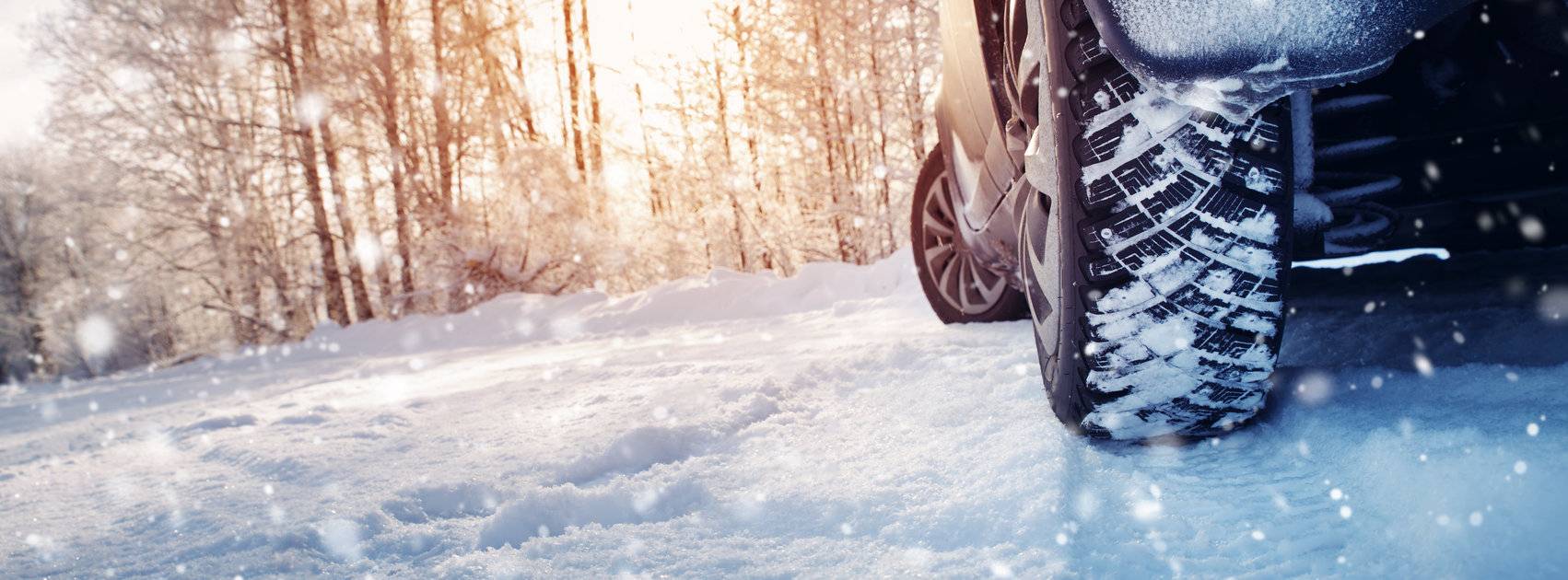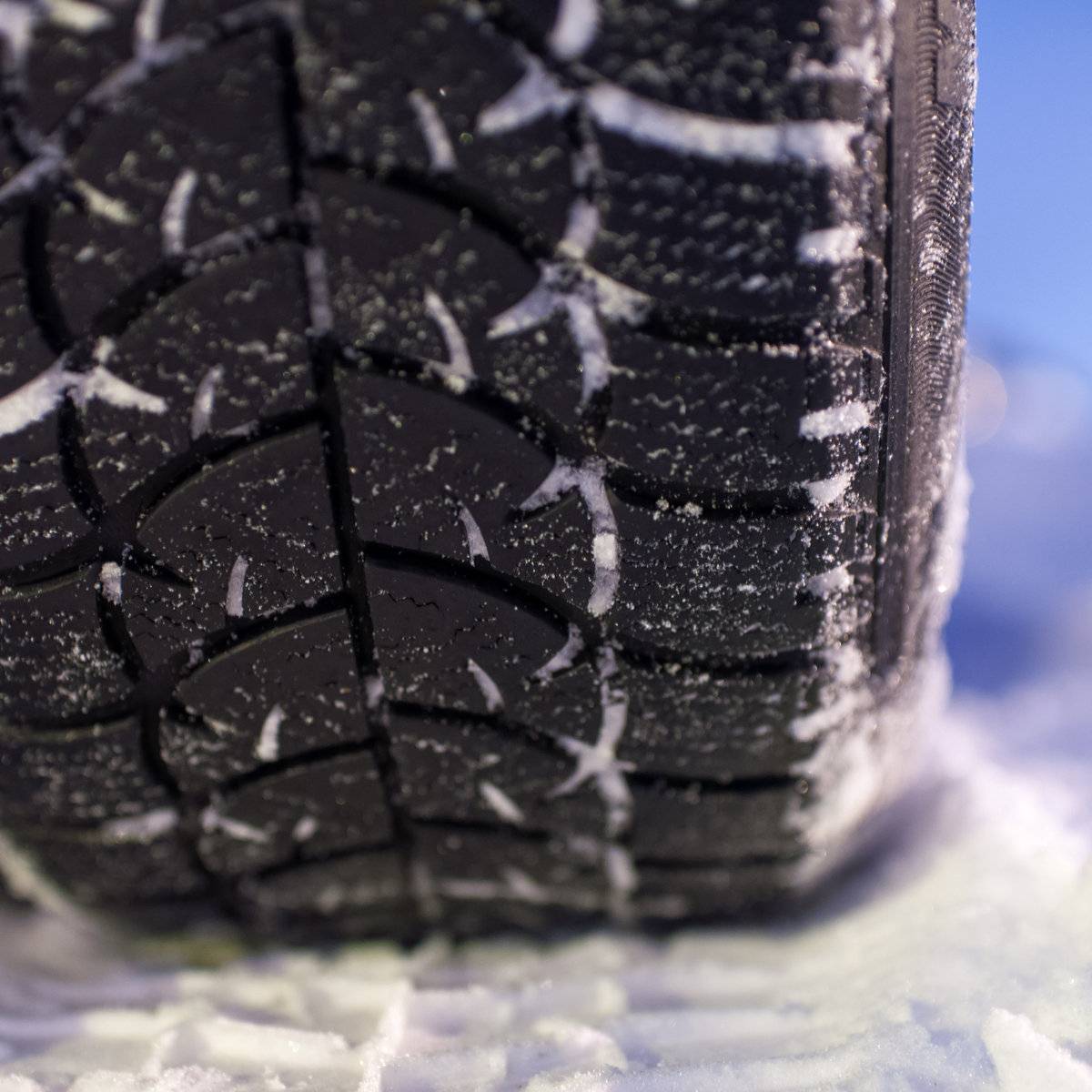
Preparing for Winter: Choosing the Right Tires
Winter in Colorado brings a ton of fun activities, but it also brings challenging road conditions. Whether you are heading up to the mountains, traveling for holidays, or just driving to work it’s important to make sure the vehicle you’re driving is well-prepared. In this article, we will be focusing on the importance of having the right tires for the right conditions. Be sure to also check out our blog, Winter Driving Essentials, for maximum preparedness this winter!
Living in Colorado, a good snow tire is key for most drivers during the winter. Just like we put away our flip-flops and sandals and pull out our winter boots, our cars need the right “shoes” for the weather too. Although you could still walk around in the snow in your gym shoes, your odds of slipping and falling are much higher than if you threw on your snow boots. It’s the same common sense for your car! Do you have the right tires on your car?
The Importance of Traction
Even if your vehicle has a well-designed power train, a good performing suspension system, and the best braking system you can find, all of these systems rely on the tires and their contact with the road surface. Did you know that the area of contact each tire has with the road is only about one and a half times the size of your hand? That small area is where your car gets traction, it’s grip on the road. The more traction you have, the easier it is to control your vehicle. You can see how with only a small area to control several thousand pounds of car, that small area should be the best match for conditions.
You may be thinking, “yes, but my tires are ‘all-season’ so I’m okay.” However, okay is not the same as ideal. All-season tires are designed to be sort of a jack-of-all-trades tire. Unfortunately, they are a master of none. That means they are okay in all conditions and not great in any of them. So how do you make sure you have the right tires for winter?
Choosing The Right Tires
Key criteria for selecting a tire include tread pattern and the tread compounds. However, choosing the right tire should ultimately come down to what is going to give you the best performance for the conditions you’ll be driving in most. To do this, it’s important to understand what features are available and how they affect performance.
First, let’s talk about tread.
Tread is the pattern of grooves on your tires. Some tread patterns are designed to help water disperse more quickly to help prevent hydroplaning in heavy rain or standing water. Other patterns with larger blocks at angles can help provide better grip on snowy roads. Additionally, snow tires often have many little slits which create many tiny edges that can add a lot of traction in slick conditions. All-season tires do their best to have a tread pattern that’s “good enough” for most conditions, but they can’t match the safety of a good snow tire when conditions are tough.

Tread can be made from different materials that affect the hardness of the rubber. These compounds can be used to make the tread very hard, which increases the amount of time before they need to be replaced. Some people buy tires based only on how many miles they will carry them before they need to buy new ones. Although wear is a factor to consider, it’s important to know that you are sacrificing traction with a harder tire. When the rubber is a bit softer it has a better grip on the road. Dedicated winter tires often have a multicellular compound. It provides a bunch of microscopic biting edges that are designed to grip slick and icy roads extremely well.
Studded Tires
Some snow tires have the option for something called “studs”. These are small, hard rubber or metal pins that can be installed by your mechanic with a special tool. They stick out from the surface of the tire to help “dig in” to ice and snow, sort of like cleats on sports shoes. However, not all winter tires are made for studs to be installed in them and you don’t have to have them. Studded tires can damage dry roadways so it’s important to switch them out as soon as the season comes to a close.
The Right Tires For The Right Conditions
Choosing the best tire might seem complex, but ultimately the best tire for your car is the one that matches conditions. And remember, when it comes to performance and safety, traction is king. In Colorado, many drivers choose to have a set of dedicated snow tires they use from about November to maybe the end of April. The rest of the year they swap out for a good all-season tire that balances the need for a good wear capability without sacrificing too much grip.
This may sound expensive. However, since you aren’t using your tires year round, the average snow tire should last you 3 to 4 seasons when cared for correctly. This means removing them as soon as weather allows and storing them away from summer heat. Additionally, you should go longer between purchasing your all-season tires too. First, because you aren’t on them all year, and second, because they aren’t being exposed to the chemicals used to melt snow on the roads.
Having the right tires on your vehicle in Colorado can make the difference between a safe and fun trip up to the mountains and a stressful, even frightening, driving experience. The investment you make in being properly prepared for the season can be a lot less than the potential losses from an accident because your tires didn’t provide you enough control.

More Than Just Good Tires
Now that you know what “shoes” your car needs to wear this winter and you have a well maintained vehicle, it’s important for YOU to know how to respond in the event that you encounter slick conditions. Your tires provide the traction, but ultimately you need to know how to use the control they provide to maneuver dangerous conditions. That’s why we offer an effective, affordable Winter Driving course for all drivers. Whether you are new to Colorado, a long time resident who has never had expert training, or you are a parent who wants your teen to be fully prepared this winter, our course is a great choice.
Our Winter Driving course includes 2 hours of behind-the-wheel instruction to help you learn the right techniques, improve your reaction times, and feel more confident on the road. Your safety, the safety of those who ride with you, and of those who share the road with you, is worth it! Click here for more information and to enroll today!
Contact Us
Denver Office - Centennial
15659 E. Hinsdale Drive Centennial, CO 80112
(720) 893-1249
Colorado Springs Office - North
2590 Vickers Dr. #C
Colorado Springs, CO 80918
(720) 893-1249
Colorado Springs Office - South
620 Southpointe Ct, #130
Colorado Springs, CO 80906
(720) 893-1249
Denver Office - Castle Rock
210 Fifth St
Castle Rock, CO 80104
(720) 893-1249
Northern Colorado Office - Ft Collins
3115 East Mulberry
Ft Collins, CO 80524
(720) 893-1249
Northern Colorado Office - Loveland
1501 N. Cleveland Ave.
Loveland, CO 80538
(720) 893-1249
Denver West Training Location
Colorado Center for the Blind Lot 2233 W Shepperd Ave, Littleton, CO 80120
Office Hours
M-F: 8am - 5pm
Our offices are closed on weekends, but students are in classes, on-street sessions and in driving camps.
